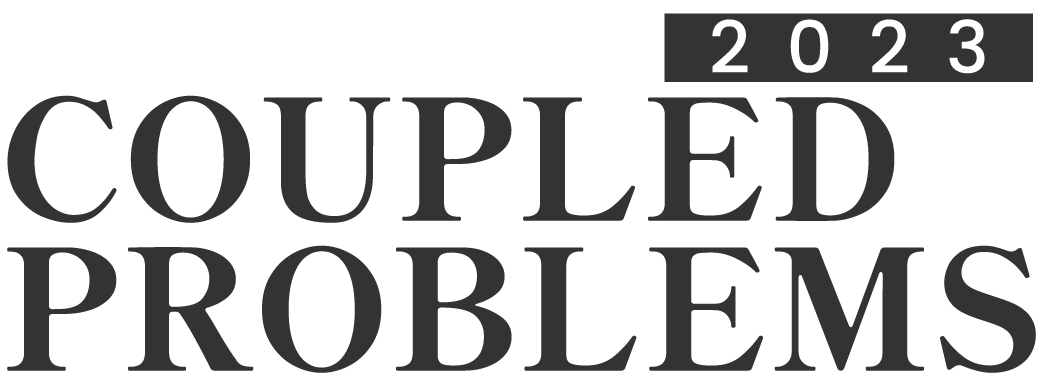

A Thermomechanically Coupled Model for Fiber-reinforced Semi-crystalline Polymers at Finite Strains: Application to Varying Degrees of Crystallinity and Temperature
Please login to view abstract download link
Thermoforming and injection moulding processes are exemplary automotive or aerospace indus- try applications for thermoplastic materials, due to their high strength to weight ratio and their ability for cost-effective mass production. In this class of materials, semi-crystalline polymers are a subcategory with a characteristic biphasic microstructure consisting of amorphous as well as crystalline phases. Heated above the glass-transition temperature, these materials exibit a change in material behavior and a recrystallization upon cool-down. Numerous factors influenc- ing the material response, for example temperature, degree of crystallinity, strain rate, moisture etc. result in a challenging material to control, having industrial production requirements in mind. These complex dependencies require accurate computational models to prevent produc- tion errors. This work presents a thermomechanically coupled and thermodynamically consistent material formulation for glassfiber reinforced polymers at finite strains. Here, an experimentally charac- terized polymeric matrix model, based on [1, 2], is extended in analogy to [3] with glassfibers to model transversally isotropic material behavior. In order to account for the highly nonlinear ma- terial response at finite deformations, visco-elastic and elasto-plastic contributions are combined and the crystallization kinetics are taken into account. The material parameters depend on the temperature as well as the degree of crystallinity. To identify the macro-material formulation, experiments as well as virtual unit cell calculations are taken into account. A comparison of a complete thermoforming simulation with experiments is planned as future validation. REFERENCES [1] Vladimirov I., Pietryga M. and Reese S., On the modelling of non-linear kinemtaic hard- ening at finite strains with application to springback - Comparison of time integration algorithms, Int. J. Numer. Meth. Eng., (2008) 75:1–28. [2] Felder S., Holthusen H., Hesseler S., Pohlkemper F., Gries T., Simon J.-W. and Reese S., Incorporating crystallinity distributions into a thermo-mechanically coupled constitutive model for semi-crystalline polymers, Int. J. Plast., (2020) 135:102751. [3] Reese S., Meso-macro modelling of fibre-reinforced rubber-like composites exhibiting large elastoplastic deformation, Int. J. Solids Struct., (2003) 40:951–980.

